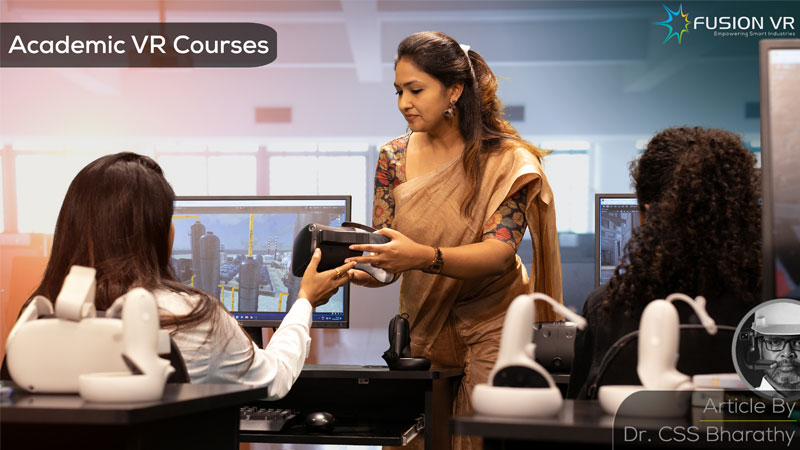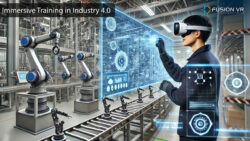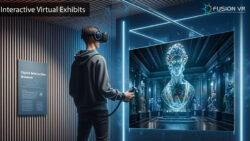Virtual Reality is finding exciting new applications in almost every industry across the globe. CEOs and CTOs are beginning to see the endless possibilities VR has opened up in their companies to obtain competent and productive human resources. Virtual Reality or VR is a crucial technology in the Fourth Industrial Revolution which is already underway.
More popularly known as Industry 4.0, this revolution is a suite of technologies that will further transform the way our industries function in the 21st century.
It is becoming clear that we may not have enough human resources with expertise and experience to develop and implement VR solutions everywhere. There is a huge demand for VR AR engineers, estimated at around 1400% and growing tremendously. We do not have virtual reality training courses that have been developed in anticipation of this need. Most VR experts have been self-taught or have been part of organisations engaged in VR research and development. So, where do you begin to learn virtual reality? Particularly when the industry needs qualified students and young professionals to hit the ground running.
We look up to colleges and universities to help the industry develop such capabilities in such situations. However, with VR technology at a nascent stage in industrial implementation, there are not many academics with an in-depth understanding and experience of VR. It has become the task of solution providers with multiple years of expertise and institutions to collaborate and help address the gap. This could be the most effective approach to ensure opportunities to take advantage of VR technology are not lost.
The Future of AR VR Education: Programs, Infrastructure, and Partnerships
Curriculum development for AR VR courses must be given careful attention. It should be aligned with what the industry needs, with a blend of essential theoretical knowledge and practical technical skills. Courses also need to integrate programs that foster interaction with industry professionals so that students can network with them and learn more AR VR developer skills that meet market needs. More collaboration between industry and academia naturally results in win-win scenarios. Companies will benefit from getting job-ready candidates and institutions will have students who need not worry about job placement.
Another progressive step for universities and colleges is to work on programs where VR experts from the industry are roped in to deliver courses designed as essential or electives for the degree programs that students are pursuing. Students can opt for virtual reality courses that specialise in various aspects of VR technology. Curriculums also need to seriously consider combining augmented reality courses as the industry expects familiarity with both technologies.
Fortunately, there is a gradual consciousness and recognition that this gap needs to be addressed sooner than later. The benefits of Industry 4.0 are being understood better, particularly the value of AR VR courses. Another area that needs focus is developing the necessary infrastructure to provide AR VR training at institutions. Capital expenditure for labs needs to be done carefully to align with the current and future needs. Support may be required to maintain and upgrade such infrastructure as VR technology evolves. The need to upskill and upgrade our nation’s human capital is vital to ensure investment and job availability happen. Neither industry nor academia can be a spectator when such national priorities exist.
Fusion VR has been a pioneer in India for AR VR MR solutions for the past decade serving customers in India, the Middle East, and South-East Asia. We appreciate and support institutions interested in establishing VR AR courses at their campuses through the Industry Academic Alliance Program for the benefit of students and the industry. In our humble and expert opinion, this is an ideal place to begin the journey to learning VR.





